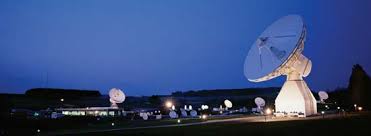
CHELMSFORD: Teledyne e2v, a business unit of Teledyne Technologies Incorporated and part of the Teledyne Imaging Group, has been selected through the grouped proposal of the European Space Agency’s (ESA) industrial policy committee to place six Copernicus Sentinel satellite missions to provide the image sensor technology.
The two missions, CHIME and CO2M, funded by ESA, incorporate image sensors at the heart of the instruments and will utilize Teledyne Imaging’s technology.
The Copernicus Hyperspectral Imaging Mission, CHIME, a unique visible to shortwave infrared spectrometer will provide routine hyperspectral observations to support new and enhanced services for sustainable agricultural and biodiversity management, and soil property characterization. The mission will complement Copernicus Sentinel-2, which also features a Teledyne Imaging visible sensor, for applications such as land-cover mapping. Thales Alenia Space France will lead the CHIME industrial consortium.
“This is excellent news in two respects for the CHIME mission,” said Dr. Miles Adcock, President Space and Quantum at Teledyne e2v. “First, the UK facility has been able to continue the long-standing supply of imaging sensor technology to the Copernicus Sentinels. Second, we have developed a UK infrared detector design and manufacturing capability that utilizes the world’s best base detector substrate materials from within the Teledyne Imaging Group.”
The Copernicus Anthropogenic Carbon Dioxide Monitoring (CO2M) mission will carry a near-infrared and shortwave-infrared spectrometer to measure atmospheric carbon dioxide produced by human activity. The mission will comprise a constellation of three spacecraft to map the emissions of carbon dioxide.
CO2M will comprise four sensor instruments, CO2I, NO2, Multi-Angle Polarimeter (MAP) and Cloud Imager (CLIM).
Teledyne Imaging will supply for the MAP instrument focal plane array (FPA) VNIR CMOS digital image sensors, from their new family called Capella (2,048 x 2,048 10µm pixels).
Capella will also feature as the visible sensors for the CO2I and NO2 instruments.
In addition, the CLIM instrument, which relies on the Proba-V flight proven design, will utilize a Teledyne e2v VNIR CCD detector using 4 x 6,000 pixels of the flight-proven quadrilinear 13µm pixel device. The CO2M industrial consortium will be led by OHB-System AG.
“We have a proud heritage of supplying the Sentinels with CCD and CMOS detectors and with this extension of the program, we are very excited to now be providing a SWIR detector as well as the VNIR detectors,” said Christophe Tatard, Vice President Business and Product Development at Teledyne e2v.